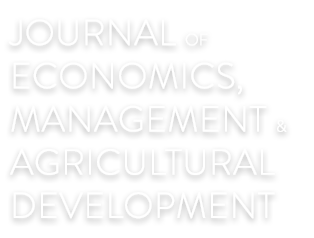Authors
ABSTRACT
The study describes how the demand and preference for agricultural credit is satisfied or not among corn farmers in Isabela, Philippines. It also categorizes farmers as credit unconstrained, quantity rationed, transaction cost rationed or risk rationed individuals, and determines the factors affecting credit constraint. A total of 76 credit unconstrained and 76 credit constrained corn farmers were selected using stratified random sampling. Using probit regression analysis, the significant determinants of credit constraint are age, sex, and monthly household income. Results show that corn farmers who are older, male, or have higher income are less likely to become credit constrained. The main reason cited for being credit constrained in the formal sector is the lack of collateral while for the informal sector, the reason cited is loan application being partially approved.

